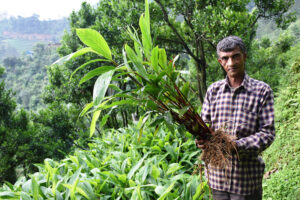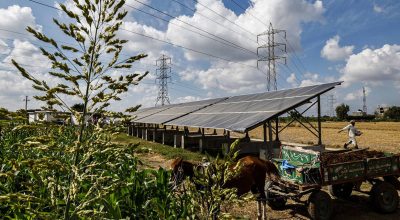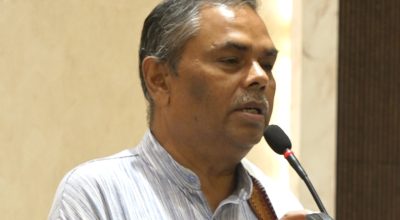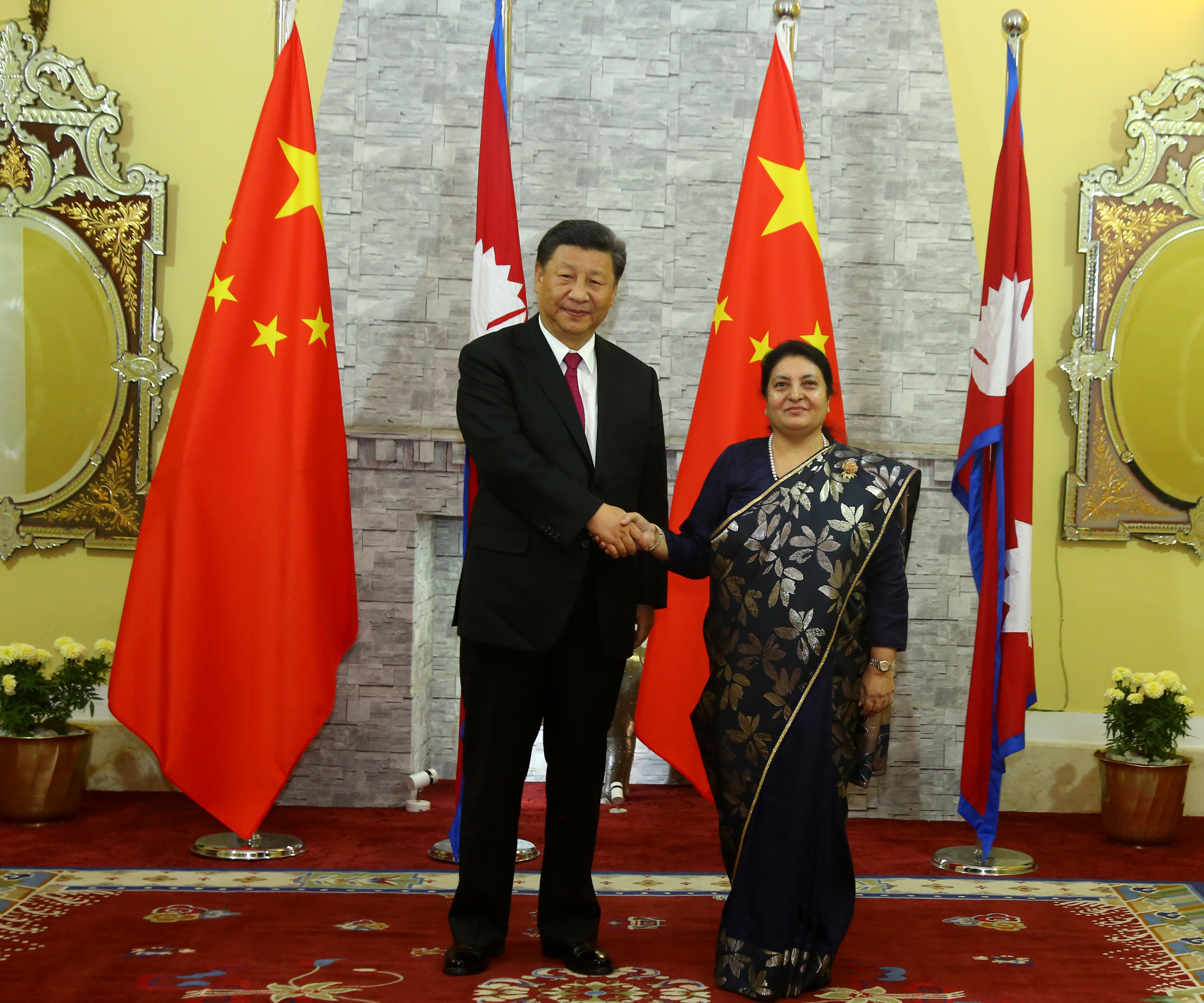
China and Nepal are friendly neighbors and development partners with a shared future. No matter whether it was after the catastrophic earthquakes or during the COVID-19 pandemic, China and Nepal have consistently helped each other out, reflecting the deep friendship between the peoples of the two countries.
Recently, Zhao Yipu, the Global Times’ special correspondent in Kathmandu (GT), had the opportunity to talk with the President of Nepal Bidya Devi Bhandari (Bhandari), who is the first woman leader to have been elected to the country’s highest office.
She was voted president in 2015, coinciding with the country’s promulgation of its new constitution, and was reelected three years later. Under her tenure, the overall China-Nepal relations have progressed in several areas. In the interview with GT, she talked about the Beijing 2022 Winter Olympic Games, her understanding of the leadership of Chinese President Xi Jinping and the Communist Party of China, as well as China-Nepal cooperation based on the Belt and Road Initiative.
GT: The Beijing 2022 Winter Olympic Games concluded recently. Have you found the time to watch the opening ceremony or some competitions? What did you think of the event?
Bhandari: The Olympics is in itself a big brand and the biggest sporting event of the world. For China, successfully hosting the Winter Olympics was a remarkable occasion. I sent my best wishes for the Games prior to the event. I now congratulate all the athletes who participated in different sports and won medals. China, I believe, did a commendable job in making the Winter Olympics successful. I also extend my best wishes for the Winter Paralympics now taking place in Beijing.
GT: In the year 2019, during Chinese President Xi Jinping’s historic visit to Nepal, he met you in Kathmandu. Could you share with us some details of that meeting? How has the visit contributed to China-Nepal relations?
Bhandari: I have fond memories of His Excellency Xi Jinping’s state visit to Nepal in 2019. It proved historic for several reasons. The visit was the first in 23 years by the Head of the State of China. We enhanced our relations to the level of strategic partnership for development. We had delegation-level talks where we looked into the entire spectrum of our bilateral cooperation. So, the visit was highly successful. To follow up on the agreements that we reached then, our governments are working hard and many high-level delegations have visited our two countries. Overall, I am satisfied at the progress of Nepal-China relations.
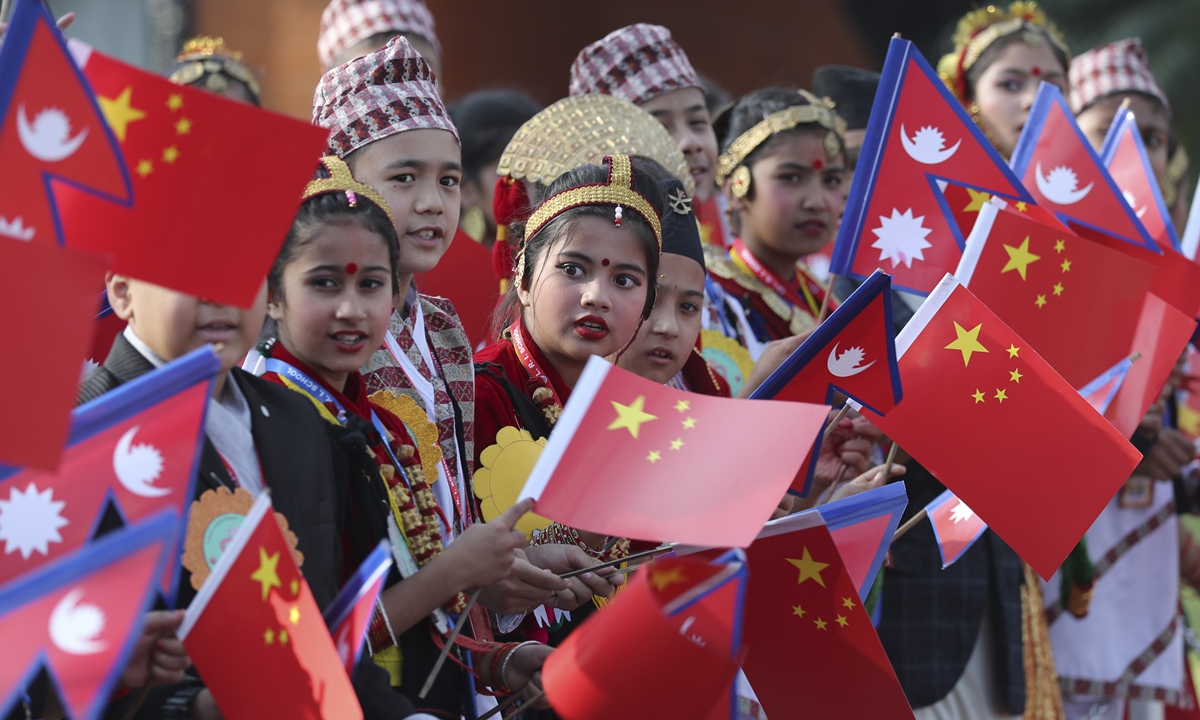
Nepalese children wave national flags of China and Nepal to welcome Chinese President Xi Jinping for a state visit in Nepal in October 2019. Photo: cnsphoto
GT: President Xi and you have met or called each other many times in the last six years. How would you like to recall those exchanges in light of President Xi’s many initiatives for Nepal and beyond?
Bhandari: You are correct in pointing out that President Xi and I have held several meetings and conversations over the past years. We have also exchanged written communications. I came to China in May 2019 on a state visit, then President Xi visited Nepal. I would like to specifically recall our telephone conversations during the peak of the COVID-19 pandemic, when we got to assess the situation and prepare for the response. Those interactions proved really fruitful. I appreciate and sincerely thank President Xi’s leadership in providing quick humanitarian support to Nepal in the form of millions of doses of vaccines, medical equipment, oxygen cylinders and so on when we needed them the most. Early cooperation from China actually proved key in Nepal’s fight against the pandemic. Thanks to them, we were able to save many precious lives. China has demonstrated leadership in coping with the pandemic domestically and has extended support to many countries in need, which I find extremely valuable.
GT: Have you ever read the books XI JINPING: THE GOVERNANCE OF CHINA? What do you think of Xi’s governance in China from 2012?
Bhandari: Our scholars have translated volumes of his books into Nepali language too. I have myself made their English as well as translated versions public. I think these volumes provide an understanding of the people-centric governance in China under the leadership of President Xi and the Communist Party of China. Among other things, they appear to draw the trajectory of China’s economic growth, poverty alleviation and tremendous infrastructure development together with President Xi’s vision of a shared future for mankind.
GT: China and Nepal share a traditional friendship. The two countries have also enhanced cooperation in many areas. Could you share some thoughts on the status of today’s China-Nepal relationship?
Bhandari: Nepal and China share a bond of friendship enriched by our common heritage of Buddhist civilization. We have deep cultural links across the Himalayas. It goes without saying that we have kept this amity for centuries because of Nepal-China relations are founded on time-tested mutual trust. While China has generously supported Nepal’s development efforts, Nepal has always remained committed to the one-China principle and advocated in history for China’s rightful place in the United Nations. Our mutual trust keeps our relations largely problem-free today. Our areas of mutual cooperation are ever expanding. We need to continue to work for taking this friendship to new heights. I see innumerable possibilities in Nepal-China relations.
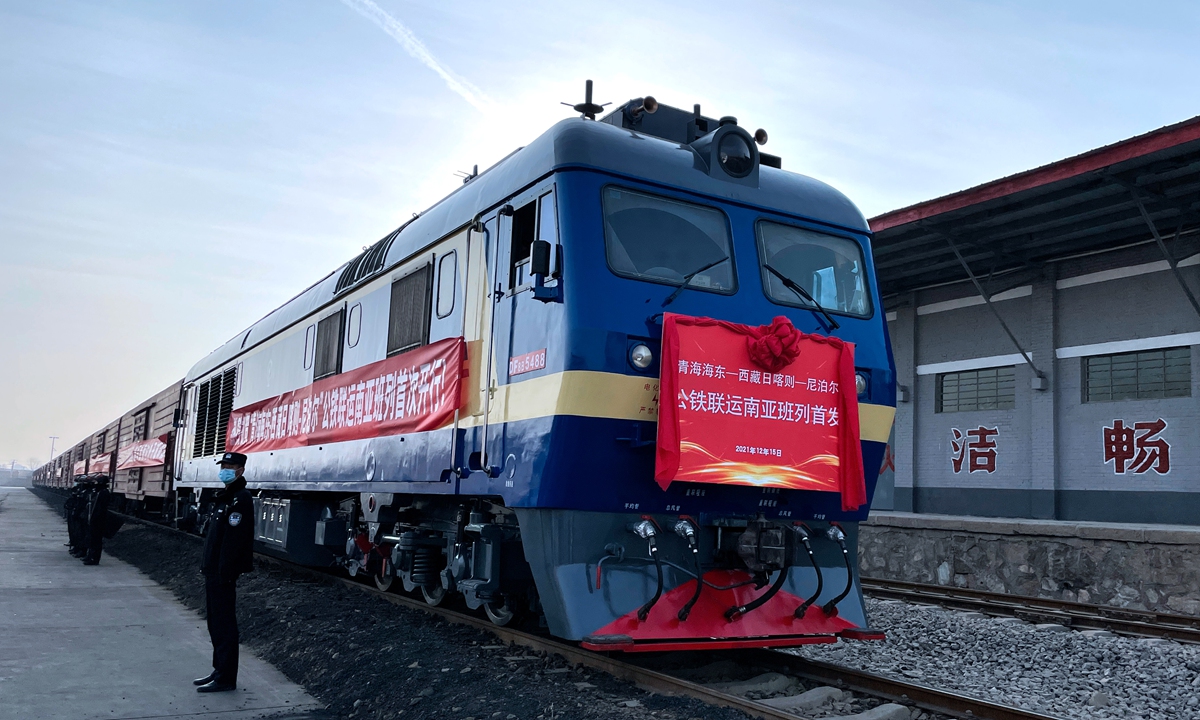
The Haidong-Shigatse-Nepal highway-rail combined transport service is launched in December 2021. Photo: cnsphoto
GT: President Xi has proposed the Belt and Road Initiative and the concept of “a community with a shared future for mankind,” and supported to global anti-COVID cooperation. What do you think of China’s international role?
Bhandari: Nepal, as you know, is also a member of the Belt and Road Initiative. We appreciate the vision of the Trans-Himalayan Multi-Dimensional Connectivity Network. We see them as opportunities for Nepal’s infrastructure development and would like to advance this process. For many reasons, the BRI projects are yet to gain momentum even as we have signed the memorandum of understanding some five years ago. We need to put our common effort toward expediting them.
For the last two and a half years, the world has been fighting the COVID-19 pandemic. Consequently, development works have stalled, economies have shrunk, and tourism has been terribly affected all over the world. At the same time, countries around the world have invested in health infrastructure. New possibilities have emerged with the availability of vaccines. China has readily provided support for many countries in their fight against the pandemic, and quite generously for Nepal. On behalf of the government and people of Nepal, I thank President Xi and the friendly people of China for their cooperation in terms of millions of doses of vaccines and other emergency supplies with which we have saved many lives.
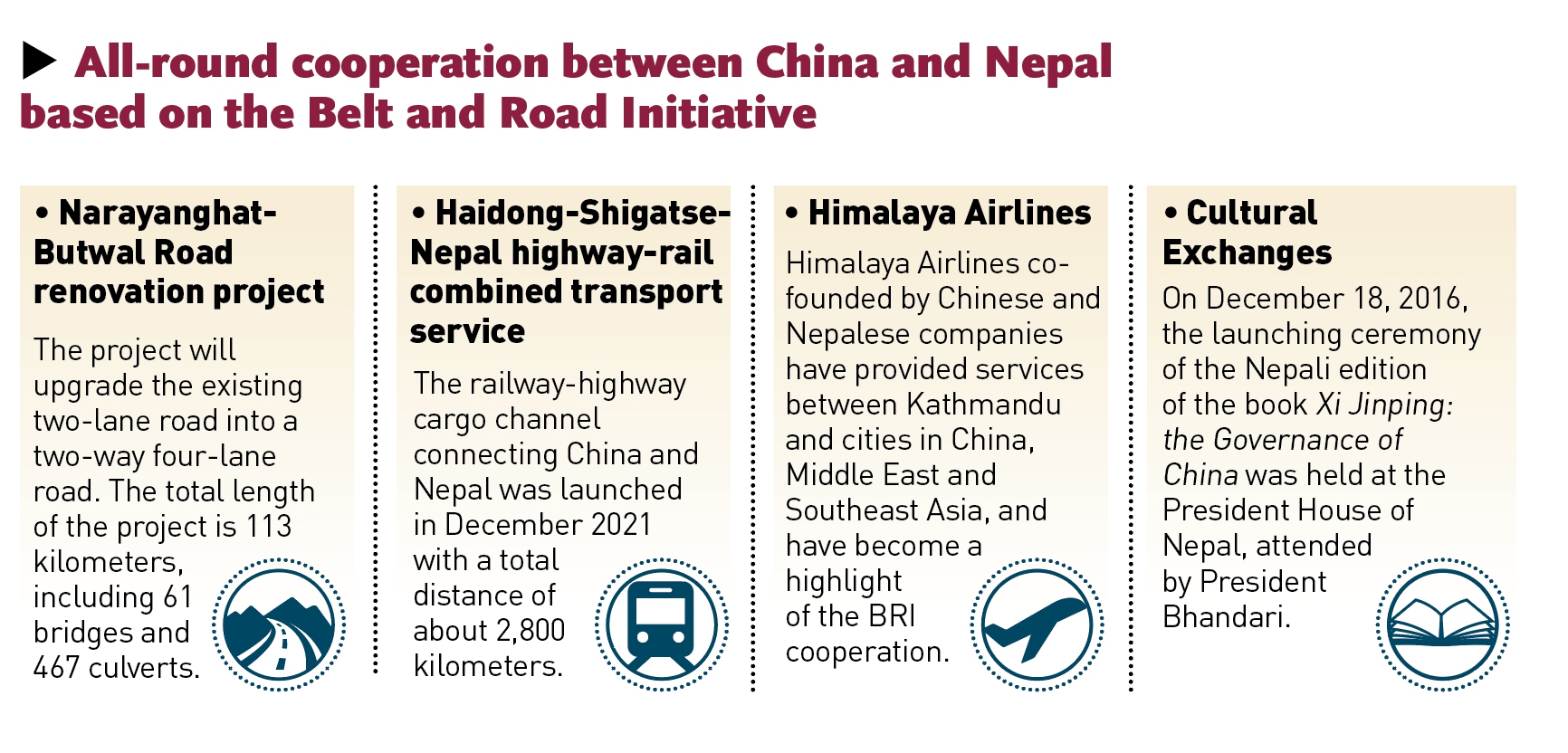
GT
Source: Global Times





